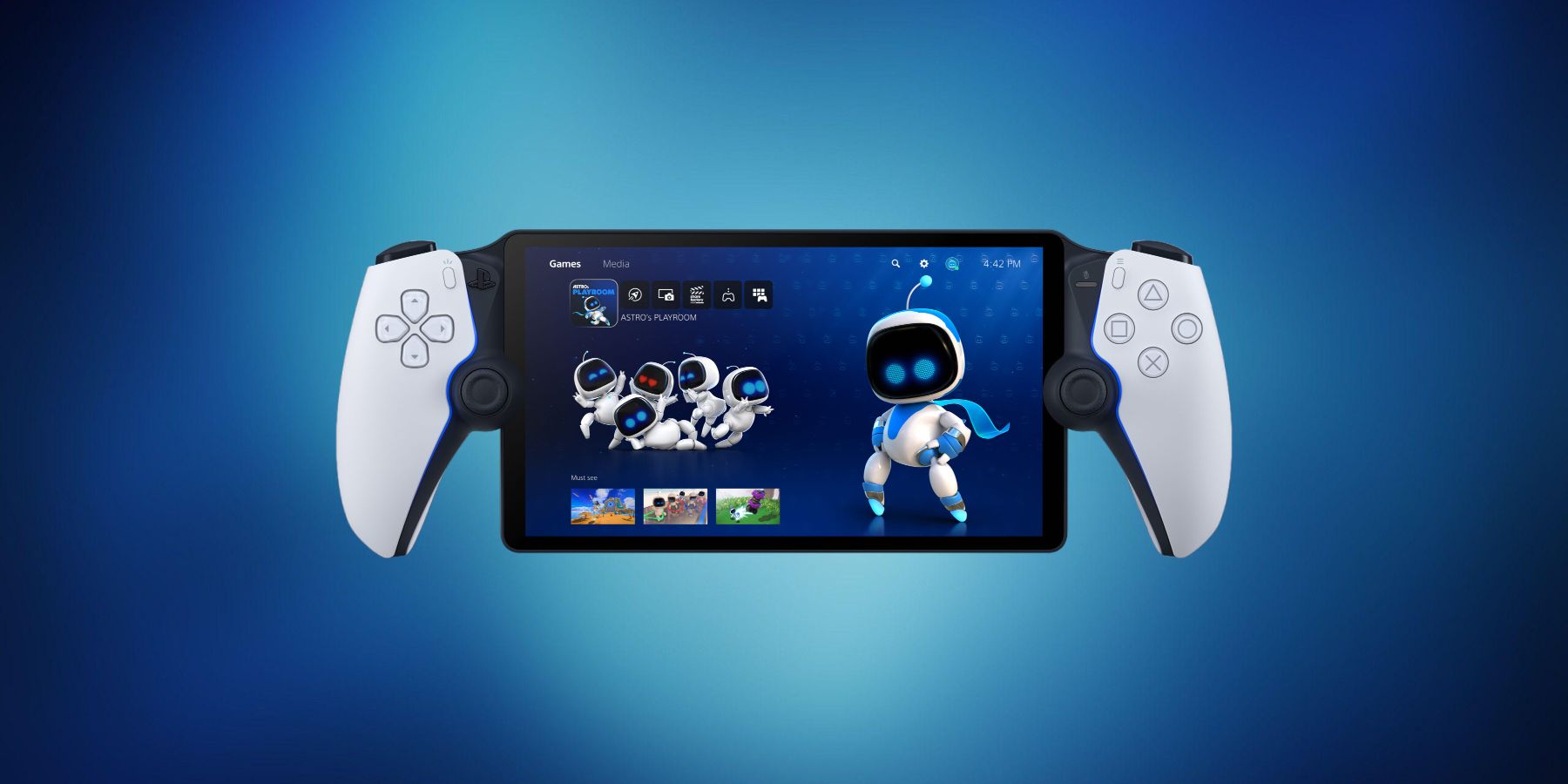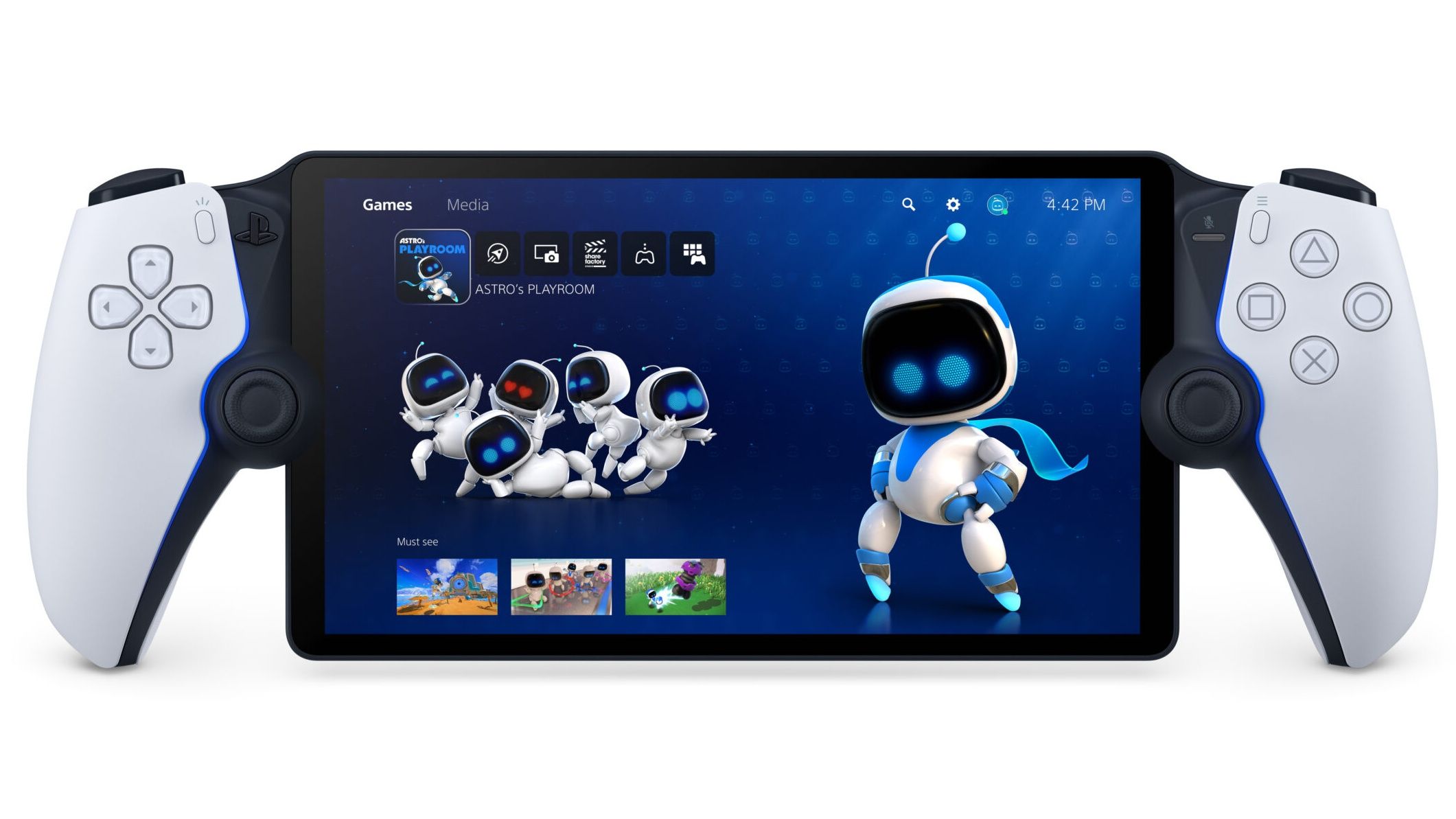
Sony CEO Denies PlayStation Portal's Intent as a 'Competitor' for the Nintendo Switch

Sony's executive clarifies that the PlayStation Portal remote player peripheral is not intended to compete with the Nintendo Switch console, emphasizing its purpose and unique features
Highlights
Sony's PlayStation Portal is not meant to compete with Nintendo Switch or Valve's Steam Deck, according to Sony executive Eric Lempel.
The PlayStation Portal is a handheld accessory that enables PlayStation users to stream games from their PS5 console, provided they have an internet connection. It offers the convenience of playing games on a different screen and in various locations, like on a sofa or in a separate room.
According to a Sony executive and PlayStation Senior Vice President, the upcoming PlayStation Portal peripheral was not intended to compete with similar systems such as the Nintendo Switch. Unlike previous handheld devices like the PlayStation Portable or PlayStation Vita, the PlayStation Portal is not a standalone console. Instead, it is a gaming handheld peripheral that can only be used with the PS5.
The system, initially known as "Project Q," was first unveiled earlier this year and was officially named the PlayStation Portal in late August. Sony also announced the price and release date of the device, set for November 15, 2023. Initial reception of the PlayStation Portal was mixed, with some criticizing its primary function of remote playing PS5 games, comparing it unfavorably to Nintendo's Wii U gamepad. Some suggested that the Portal would have been better received if it had features similar to the Nintendo Switch or Valve's Steam Deck, or if it served as a successor to the PlayStation Portable or Vita. Sony's Eric Lempel clarified that the Portal was not intended as a rival to Nintendo or Valve's hardware.
PlayStation Portal Purpose and Features
According to BBC's report, Eric Lempel claims that the PlayStation Portal sets itself apart from the Switch and Steam Deck by targeting a distinct audience and offering a unique experience tailored for PlayStation users. Lempel highlights the key disparity between them - while the Switch and Steam Deck function as standalone systems, the PlayStation Portal necessitates a PS5 for operation. Additionally, it relies on an internet connection to seamlessly stream games from the console to the handheld device, eliminating the need for cables.
It's a different proposition and really just something unique for the PlayStation audience.
-Eric Lempel
Lempel further clarified that streaming games directly from the PlayStation cloud gaming service to the PlayStation Portal will not be feasible for players. Instead, he suggests that the handheld device be utilized by gamers who prefer playing on a sofa, while someone else uses the TV or when playing in a different room. Additionally, Lempel confirms that the device can also be used while outside the home, but emphasizes the importance of a stable internet connection to fully exploit its portable nature and game streaming capabilities.
Lempel also discussed Sony's first attempt at creating a customizable controller for disabled gamers, known as the PS5 Access Controller. The controller is specifically designed for use with Sony's hardware and has been carefully crafted to provide comfort for disabled gamers without the need for further adjustments. Lempel also emphasized the wide range of customization options available for the controller.
PlayStation Portal
The PlayStation Portal is not a direct successor to the PSP, but it offers a solution to the common problem of sharing one TV in a household. This device allows users to stream their PlayStation 5 gameplay directly to its large 8-inch 1080p LCD screen. What sets the PlayStation Portal apart is that it includes all the advanced features of the DualSense wireless controller, such as adaptive triggers and haptic feedback. One drawback is that it lacks bluetooth support for wireless audio, but it is compatible with PlayStation Pulse earbuds and headsets and also has a 3.5mm audio jack for wired audio.















